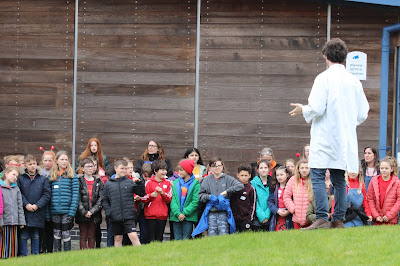Written by Daisy Harris
Daisy is a marine conservation student at Cornwall College Newquay. She enjoys getting involved with a variety of marine based charities, to gain practical experience within the field of work she is truly passionate for.
This blog post focuses on the time that Daisy spent at the Archelon Sea Turtle Rescue Centre in Athens, Greece.
________________________________________________
For me, the Mediterranean is a special place. It gave me one of the most beautiful and challenging experiences of my life as a budding marine conservationist, working at the
Archelon Sea Turtle Rescue Centre in Athens, Greece.
So what makes it special?
A mid-tropic climate paired with one of the most stunning backdrops in the world to work in for a start. Along with the fact that I was able to work with sea turtles, which are one of my favourite marine reptile species and native to the Mediterranean.
Archelon Sea Turtle Protection Society Of Greece rehabilitates injured or sick Sea Turtles, with the goal of releasing them back into their natural environment. The centre gives these Sea Turtles a place to be safe from the outside world for as long as they need. These species are truly amazing. They are so resilient to injuries, diseases, parasitism and other outside influences from both people and their natural territory.
In addition to being a rehabilitation facility, education is an important part of what Archelon does. Teaching both the locals and tourists about the importance of their native species of Sea Turtle will help them to protect them in the future. As the centre is a non-governmental organisation, it is funded through donations from charities and the public and relies on volunteers for help.
Being the only and main rescue centre within the Mediterranean, Archelon faces high pressure with the numbers of turtles they get in for rehabilitation. During my time there, a total of 35 Loggerhead Sea Turtle were at the centre, three being permanent residents and the other thirty-two requiring full-time care before being released.
Looking after the Sea Turtles day-to-day for thirty-two days, you definitely form a strong connection with these prehistoric creatures.

Summer is one of the busiest times of the year in Greece due to the warm weather and mind-blowing scenery. This meant that the work was full on. Every day, we would either be releasing the turtles back into the wild, caring for them or collecting new turtles to join the centre.
This meant you had to be on top of your game at every point of the day and had to toughen yourself up to seeing some turtles in a bad state, either upon arrival or sadly when one had died. This was one of the most difficult moments seeing a Sea Turtle in this way.
When I was at Archelon, I was collecting data for my second-year research project. I took data for thirty-two days around the behaviour of Sea Turtles within captivity, which will be used for scientific purposes for both my own project and by Archelon. I will be using it alongside other data provided by Archelon, including medical examinations and x-ray imagery, to back up the evidence I have collected. My goal is that the data will provide an insight into how Sea Turtles cope within captivity and with their injuries, which I hope will lead to stricter legislation within the EU.

All my experiences at Archelon have been worth it a thousand times over. It has helped me to realize that this is the career path I dream of, working within Sea Turtle rehabilitation. The skills I have developed and gained studying at Cornwall College and working at the centre has led me to where I am now and shaped me as a person who cares about marine wildlife and its environment. I want to fight for marine conservation forever.
I worry about the future of Sea Turtles. Within a few decades or less Sea Turtles could be extinct along with other species and the environments in which they live in.
The marina, which is the area right by the rescue centre, has been heavily impacted by people misusing the ocean for all the wrong reasons. This misuse of the marine environment is the main reason the Loggerhead Sea Turtle is endangered and still currently facing day-to-day issues.
In the end, it was hard to leave a place that meant so much to me. I miss the sound of the sea, the ocean breeze, seabirds calls and warmth within the air and it is an experience which will stay with me forever.
The truth is that beneath their hard exterior shell, sea turtles are a keystone species that help to maintain the ecosystem around them. If you remove them from that environment, the biodiversity within it will be lost.
Want to make a difference? For more information on the range of Marine, Zoology and Conservation courses available at Cornwall College Newquay visit www.cornwall.ac.uk or call 0330123 2523.













